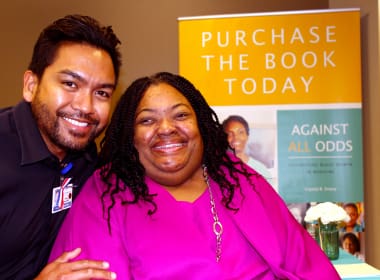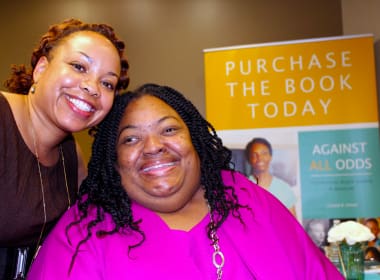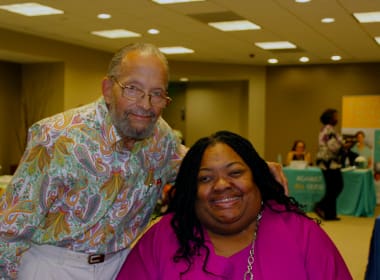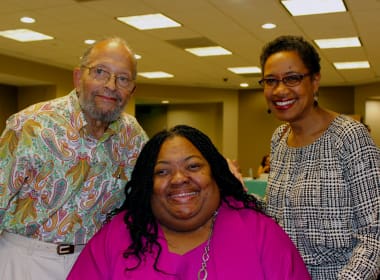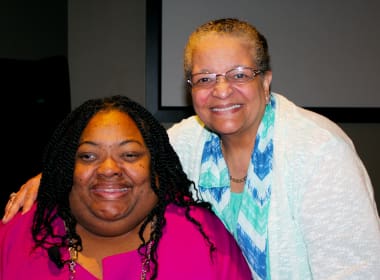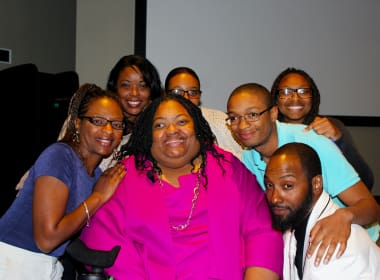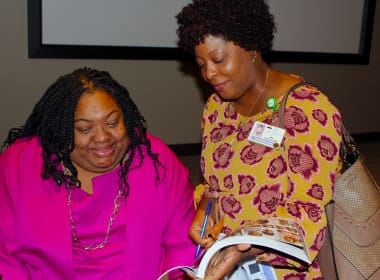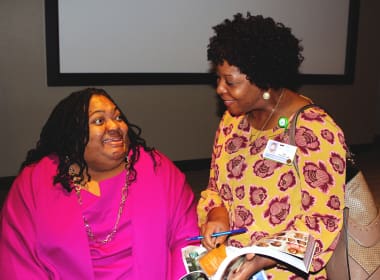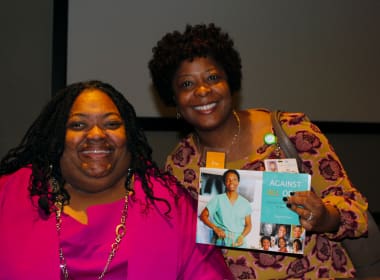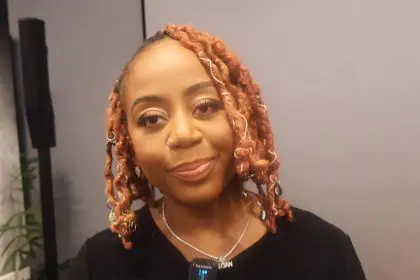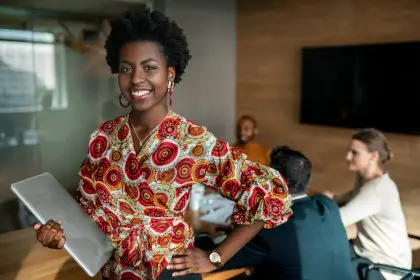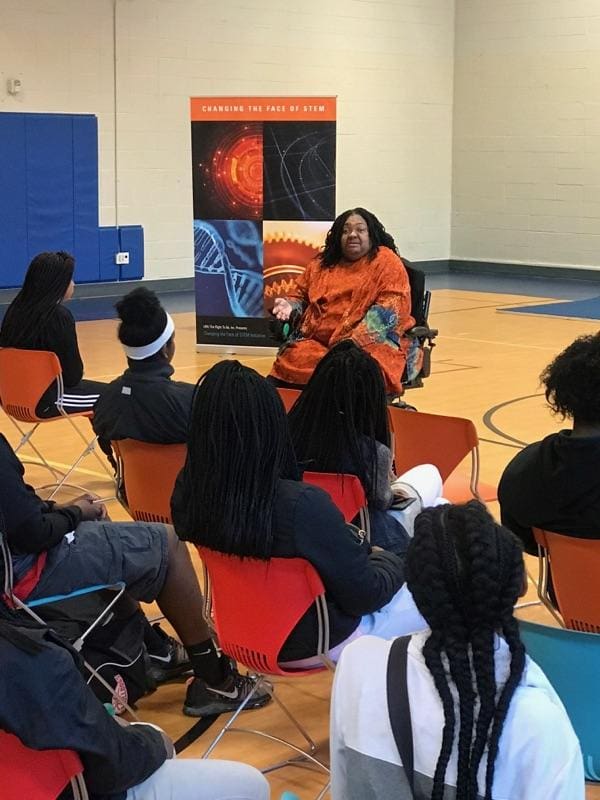
Crystal R. Emery has launched Changing the Face of STEM, a national campaign encouraging women and young people of color to pursue careers in the fields of science, technology, engineering and mathematics.
A quadriplegic who’s a filmmaker, author and playwright, Emery has inspired many to take up careers in STEM, etc. and she herself is unstoppable. Her documentary Black Women in Medicine recently aired nationally on public television; it shines the spotlight on tenacious women who have succeeded against all odds in the male-dominated medical field. The film, which shows rarely seen footage of Black women practicing medicine during critical operations, emergency care and community wellness sessions.
African Americans receive only 7.6 percent of all STEM degrees in America; less than 1 percent of all scientists and engineers are Black women. Against All Odds: Black Women in Medicine, Emery’s biographical photo-essay book profiling more than 100 spectacular physicians, is a companion piece to the film administered by Emery’s nonprofit production company, URU The Right To Be Inc. It brings stars of STEM to schools and colleges as well as community groups across the country, areas where African Americans are severely underrepresented.
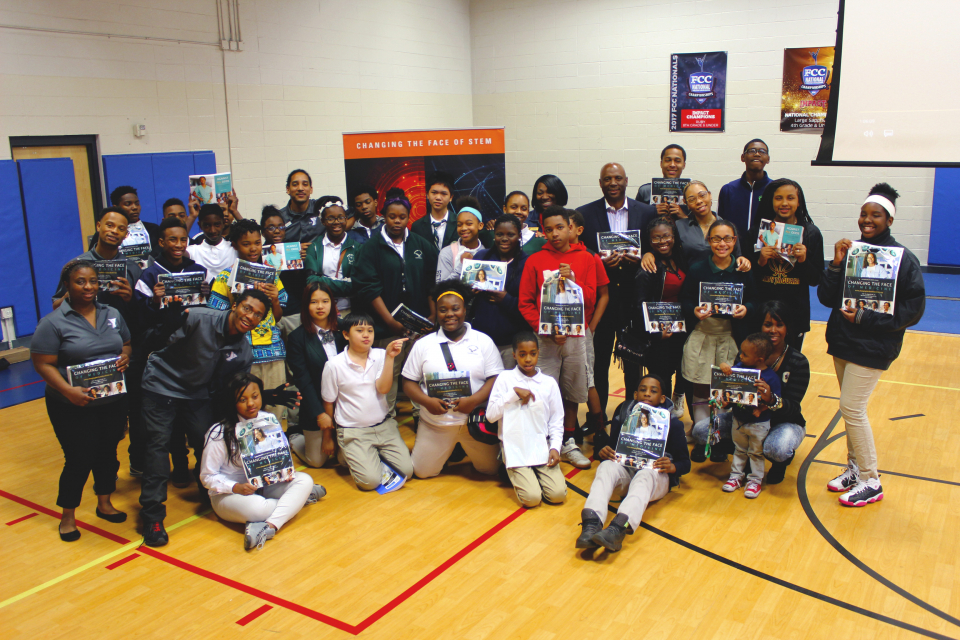
“It’s all about exposure. It’s crucial to introduce young people to ideas and careers early on so that they can begin thinking seriously about their higher education and work life during their formative years,” Emery says. “As former Surgeon General Dr. Joycelyn Elders said, ‘You can’t be what you can’t see.’”
Emery has triumphed over two chronic diseases to become an outspoken voice on the intersection between race, gender and disability.
Here, Emery shares why she answered the call to action to promote diversity in media and STEM.
You’ve answered a huge call inspiring youth, people of color and with disabilities to take up STEM studies. Why did you feel compelled to be the voice?
My film, Despite All the Odds, became eligible for Academy [Awards] consideration. During that process, I looked at the landscape and there was nobody there that looked like me.
There has yet to be a Black female director to win. When I think of STEM, I think of the whole picture, STEM, education and the way that the world is moving. If we don’t actively participate in securing our children a place at the table, they will be left out for generations.
When we think about STEM, people always think about some braniac. What we say to kids is STEM is every day of their lives and that “you are a natural science.” We want to nurture them and tell them “you are technology.” Every aspect of your life is surrounded by technology. We need you to be in the driver’s seat controlling technology.
When kids see the words science, technology, engineering and mathematics, I am trying to get them to see how they reflect their day-to-day lives.
I am a content producer and media affects every aspect of our lives. I use my talent to show them you can do and be anything.
If you had actually received that Academy Award, what do you think the impact would have been?
Hidden Figures received its Academy recognition. It was a commercial film that had stars in it, that [needed those big names] Janelle Monae, Taraji Henson to even get the film made. Look at the audience, and mainstream America, that didn’t even know there were even Black women [who worked] at NASA during that time and they were the force.
No physically disabled person has ever won an Oscar. The fact that I am a quadriplegic is a statement in itself that anything is possible.
The film celebrates Black women and is about the triumph of the human spirit. We don’t dance around [the fact] that these women have overcome racism, sexism and economic challenges to become healers. Our young people only respect that which is visible in the media.

